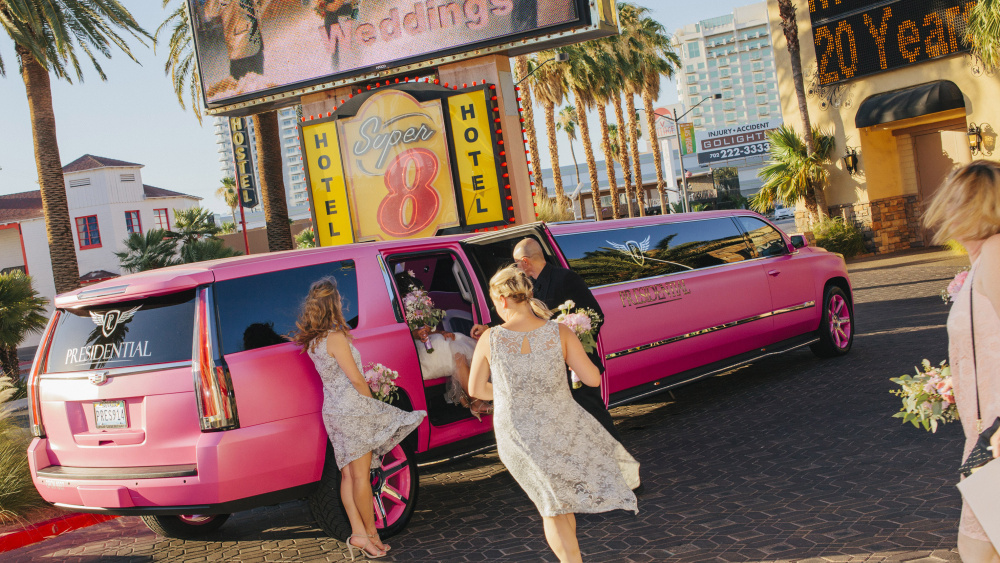Roland August has officiated at thousands of weddings in Las Vegas, the self-proclaimed capital of “I do.”
But these days August – who often presides dressed as Elvis Presley – has a rare vantage point from which to observe the nation’s long shift toward “I don’t.”
Nevada’s marriage rate has plummeted in recent decades, an extreme version of a pullback happening across the U.S. The forces that have reshaped the nation’s economic life since the 1970s have helped make marriage an institution increasingly reserved for the educated and more affluent. A spate of recent research suggests America’s marriage gap is cementing disadvantage.
The wedding chapels where August works have seen business dwindle, he said, and Vegas is pushing to reverse the decline in an industry that generates as much as $3 billion in economic activity annually. In 2015 the surrounding county introduced a $14 surcharge on marriage licenses to pay for marketing, and local business leaders helped start a Wedding Chamber of Commerce last year. The data show an effort working against a broader national shift.
“Life has prioritized things differently,” August said.
Marriage has become a clear dividing line in a stratified country. Its decline is most pronounced among those who didn’t go beyond high school, as better educated people tend to marry each other. America’s working and middle classes are faring badly, and the research points to unraveling families as one cause.
Half of Americans older than 18 were married in 2014, down from 72 percent in 1960, according to the Pew Research Center. The shift is more pronounced for the less educated, which is a loose proxy for income: As of 2014, almost 75 percent of women with bachelor’s degrees were married by their early 40s, versus less than 60 percent of women with only a high-school diploma, according to the Brookings Institution.
Likewise, childbearing outside marriage cleaves by schooling. More than 70 percent of young mothers with only a high-school education had at least one child while single, according to Johns Hopkins University sociologist Andrew Cherlin. That was true for only about 30 percent of college-educated women.
August-as-Elvis married Amy Durham and her husband, Brandon, in a Bellagio hotel penthouse. She took some persuading.
Durham, a 39-year-old from Montesano, Washington, has two children from a prior marriage, and she’s seen a cut to her child support now that she’s in a dual-income family. She works as a bank teller and her husband is a welder, but money is tight.
“As a woman coming in with children, it was very risky for me; I had very little to gain, other than making my partner happy,” Durham said.
Economic changes disrupted the traditional sequence of mating and marrying, helped by shifting mores. Women poured into the workforce in the late 1970s just as men grew increasingly unlikely to work. More recently, the Great Recession damaged prospects for the youngest lovebirds.
The change has become entrenched, according to a paper by Melissa Kearney, a University of Maryland professor. In regions where fracking sharply increased, wages for working-class men shot up, as did births. Marriage didn’t.
Men who marry drink less, work more and report greater happiness. Marriage allows couples to combine incomes, share costs and take advantage of tax breaks. Finally, children from stable, two-parent families do better in school and the job market, so today’s divide promises to entrench advantage or disadvantage.
Recent research showed that mortality is rising in middle age for less-educated white Americans, and authors Anne Case and Angus Deaton have been pointing to the move away from marriage as one possible factor.
“Both men and women lose the security of the stable marriages that were the standard among their parents,” they noted in a paper this year.
Still, not all the news is bad. Fewer marriages make for fewer divorces, for one thing, and nonmarital births are declining after peaking before the recession.
Copy the Story LinkSend questions/comments to the editors.



Success. Please wait for the page to reload. If the page does not reload within 5 seconds, please refresh the page.
Enter your email and password to access comments.
Hi, to comment on stories you must . This profile is in addition to your subscription and website login.
Already have a commenting profile? .
Invalid username/password.
Please check your email to confirm and complete your registration.
Only subscribers are eligible to post comments. Please subscribe or login first for digital access. Here’s why.
Use the form below to reset your password. When you've submitted your account email, we will send an email with a reset code.